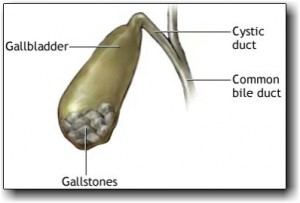This article is about the fact that a low fat diet is not protective of heart attacks. The British Medical Journal (BMJ Publishing Group, James J DiNicolantonio) published a critical editorial review regarding the lack of science behind the low fat diet guidelines. The low fat guidelines became law in 1977 in the US and in 1983 in England. The devastating fact was that it was based only on a study of 2467 men (not a single female included) and there was no evidence of lower heart attacks in the low fat diet group when compared to the normal diet control. Yet the guidelines were the cause of the obesity and diabetes epidemic that followed causing heart attacks and strokes. February, the month where we think about heart disease is the appropriate month to discuss the findings of this British Medical Journal article that exposes it all.
No significant difference between control group and low fat diet group
The BMJ Publishing Group re-traced all of the data that were available at the time of the decision in 1977. There were six clinical trials (with randomization) that had a mean duration of 5.4±3.5 years where the researchers compared low fat diets to normal diets. They found that the authorities who wrote the dietary recommendations for a low fat diet should have come to the conclusion that there was no statistical difference between the experimental group and the control group. The summary of the present re-analysis of the studies that were available to the US government in 1977 and to the UK government in 1983 was as follows: “There was no statistically significant relationship between dietary interventions and all-cause mortality.”
The researchers noted that the all cause mortality was identical in the experimental group and the control group (370 deaths in both groups). There was no significant difference of coronary heart disease (CHD) between the low fat diet group and the control group.
Low fat diet recommendations based on false data
There was no statistically significant difference in deaths from CHD (heart attacks). The reductions in mean serum cholesterol levels were significantly higher in the intervention groups; however, this did not result in measurable differences in mortality from CHD or all-cause mortality.
What is troublesome is that the six studies with randomization were the basis of all of these observations. The studies included only 2467 men, but there was not a single woman in the trial. Yet the researchers recommended the diet for both men and women alike.
The authors concluded “It seems incomprehensible that dietary advice was introduced for 220 million Americans and 56 million UK citizens given the contrary results from a small number of unhealthy men”.
Political mistakes introducing low fat diets
Dr. Robert Olson of St Louis University warned Senator George McGovern that the studies did not support the dietary recommendations the Senator was about to announce. To this objection Senator McGovern replied: “Senators don’t have the luxury that the research scientist does of waiting until every last shred of evidence is in”.
There was very good evidence that dietary changes (low fat diet) will not change the rate of heart attacks and strokes. Yet the government committees in the US and in Great Britain did not consider this evidence. Other publications have examined the consequences of replacing saturated fats with carbohydrates in the recommended low fat diets.
Sugar is the problem in low fat diets
The researchers made the following observations regarding low fat diets:
- In processed foods low fat diet meant that more sugar was added to bring the saturated fat content down. This has detrimental effects on insulin sensitivity and causes type 2 diabetes on the long-term. In these patients there is an increase of small LDL particles and triglycerides, while there is a reduction of HDL. Blood clot markers increase, weight increases causing obesity. Polyunsaturated fats of the omega-6 type (including oils from corn, soybean, safflower and cottonseed) replaced saturated fats.
- However, randomized controlled trials showed the following. When omega-6 polyunsaturated fats (without simultaneously increasing omega-3 fatty acids) replaced trans-fats and saturated fats, there was an increase of death rates from heart attacks and strokes.
- The Anti-Coronary Club trial showed that more people died from heart attacks when saturated fat was replaced by polyunsaturated fat.
- The reason for the heart attack causing omega-6-fatty acids (from polyunsaturated fats) has been worked out in several research papers between 2006 and 2012 (cited in this link): they cause inflammation, cause cancer, weaken the immune system, lower the protective HDL cholesterol and increase the susceptibility of LDL cholesterol to be oxidized.
- When polyunsaturated fatty acids (omega-6) replaced saturated fat there was more breast cancer and prostate cancer.
Low fat diets don’t work
This review stated that there was a lack of data that low fat diets help prevent heart attacks and strokes. We have now clinical trials that numbered 347 747 participants. These trials showed that increased fat intake did not cause heart attacks. The Women’s Health Initiative included 48, 835 postmenopausal women. It showed that a low fat diet did not reduce cancer. It also did not prevent heart attacks or strokes. All of this supports what has been summarized before in a critical review regarding “The Oiling of America“.
Conclusion
Enjoy saturated fat as it does not cause you harm. Cut out omega-6 fatty acids like oils from corn, soybean, safflower and cottonseed. Use virgin olive oil or coconut oil instead. Take regular supplements of omega-3 fatty acid (marine derived) to balance natural omega-6 fatty acids in turkey or chicken meat. You can eat cheese and enjoy nuts. But in the US buy organic or imported cheeses from Canada or Europe. In Canada and Europe bovine growth hormone is illegal.
It is most important to avoid sugar, honey and high fructose corn syrup. These all oxidize LDL cholesterol, which is the pre-stage for hardening of the arteries. The oxidized LDL cholesterol is part of the plaques of arteries and leads to strokes and heart attacks. This also means that you must avoid all processed foods that contain sugar and high fructose corn syrup (read labels).
It is not that difficult to follow such diet recommendations as my wife and I have done this since 2001. We use stevia to replace sugar for sweetening (no calories, no effect on insulin). Do what’s good for your body!







